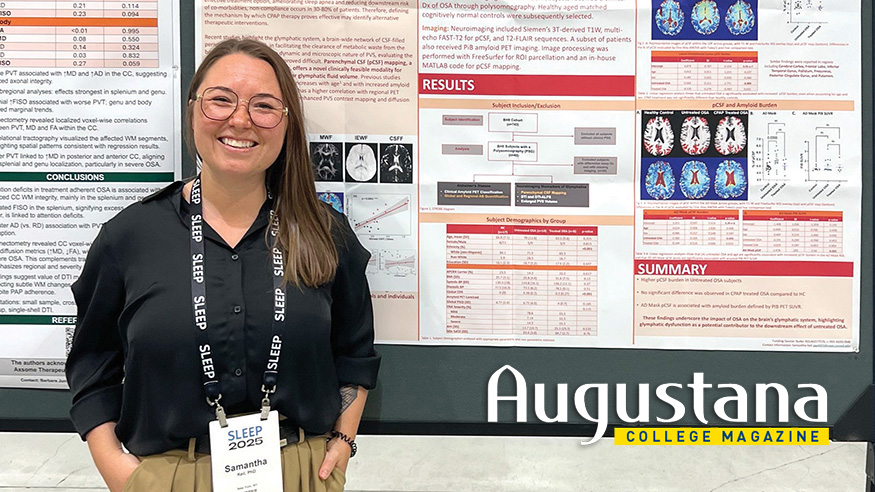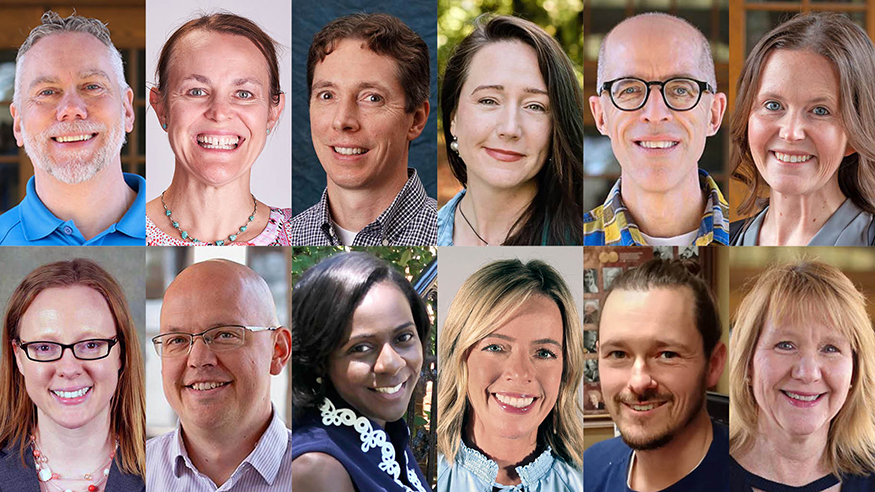2025-26 catalog
Program Advisors:
RUPA GUPTA GORDON, Associate Professor, Chair
B.S., Purdue; Ph.D., University of Iowa
IAN A. HARRINGTON, Professor
B.S., Dalhousie University; M.A., Ph.D., Toledo
SHARA STOUGH, Associate Professor
B.A., Coe College; Ph.D., University of California-Irvine
MAJOR IN NEUROSCIENCE 36 credits, including PSYC-200, -240, -246, -349, -352 one Neuroscience elective (choose from PSYC-342, -343, -347, -418); two multi-disciplinary electives from different course codes (choose from BIOL-130, -250, -358, -360, -362, CSC-320, CSD-205, -210, -410, PHIL-301, -310, -314, RELG-355); and one Senior Inquiry from PSYC-452, -458, or -466. Students who complete Senior Inquiry in another major must substitute an additional 4-credit elective at the 300 or 400 level. The major requires a minimum of 20 credits at the 300-400 level.
Students may not major or minor in both Psychology and Neuroscience.
Recommended supporting courses: some or all of the following are recommended for students planning to pursue graduate training in neuroscience and may be required by some graduate programs: CHEM-131, -132, -321, -322, -441, -442; MATH-160; PHYS-151, -152, or PHYS-211, -212, -213. Please consult with your advisor.
For course descriptions, see the catalog pages for Biology, Chemistry, Communication Sciences & Disorders, Computer Sciences, Math, Philosophy, Physics, Psychology, and Religion.
Honors in Psychology or Neuroscience: Graduating majors in psychology or neuroscience will be awarded honors upon attainment of the following: (1) a minimum grade-point average of 3.50 in all courses within the PSYC or NSCI major and 3.25 in all courses attempted (transfer students must also achieve the 3.50 minimum in all major courses taken at Augustana); (2) a research project (PSYC 481) of honors quality as judged by the department.
Grade Point Average Notation: All courses listed in the catalog as required courses for any major and/or minor, including those courses outside of the department or with a different subject coding, are considered part of the major and will count in the grade point average. Some departments may have additional grade requirements for the courses offered within their department. Recommended supporting courses that are optional and not required may also count in the major depending on the program. For more information see your department chair or the degree requirements for Bachelor of Arts and information on Majors/Minors.



